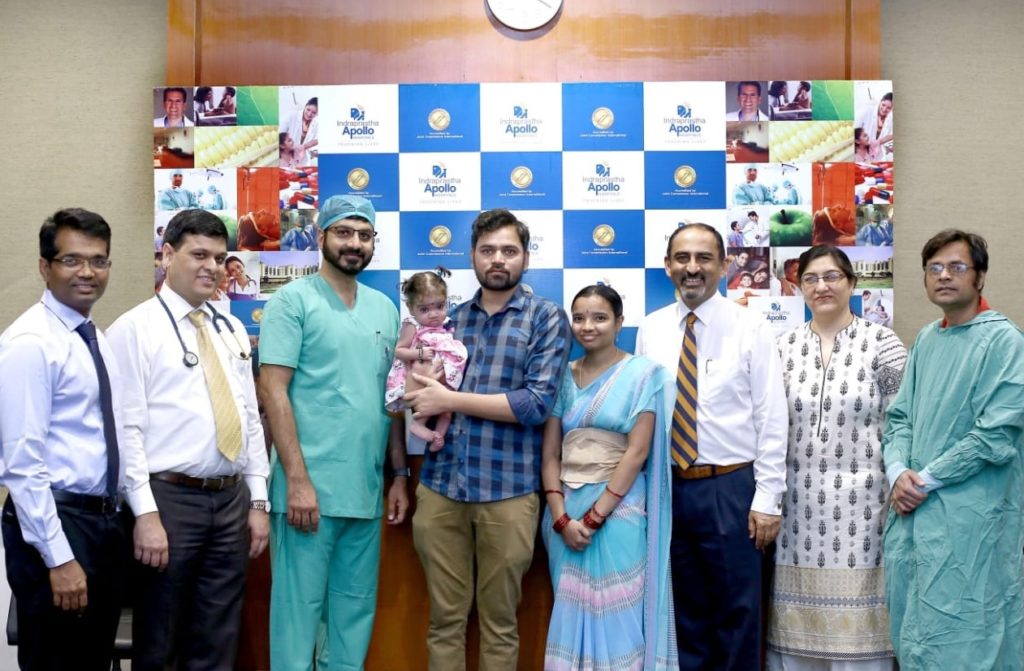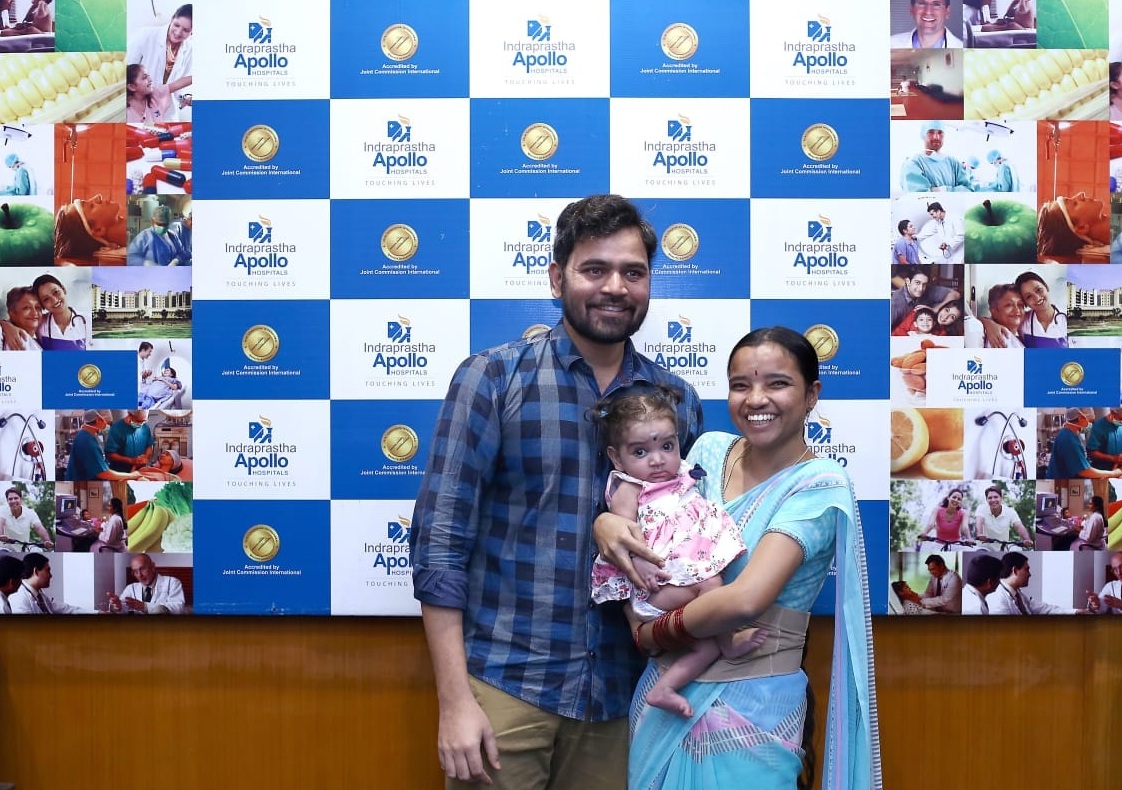Apollo Hospital doctors come together to save a 5-month-old while helping the family raise money for treatment through crowdfunding .
Five- month old baby girl Surampudi Sehitha from Kakinada, Andhra Pradesh, was diagnosed with an extremely rare case of Budd Chiari Syndrome. A condition that affects one in two million people around the world in conjunction with Biliary Atresia. It is another rare liver disease which is seen in one out of 12,000 infants.
With such complexity, her parents had lost hope. But doctors at Apollo Hospital, Delhi, took it up as a challenge and have managed to give her a new lease of life. This causes the bile to be trapped inside the liver, quickly causing damage and scarring of the liver cells (cirrhosis), and eventually liver failure. He adds, “The first step in treatment [for Biliary Atresia] is to create a connection between the liver and the intestine.”
Diagnosis of the rare liver disease
Dr Anupam Sibal said, “She weighed 5.5 kg when she first came to our hospital, including abdominal fluid of about 1 litre. So effectively, her weight was 4.5 kg. CT Angiography showed that she was suffering from occluded hepatic venous channels which drain the liver. The diagnosis of Budd Chiari Syndrome was made. Budd Chiari Syndrome had resulted in rapid worsening of the baby’s condition which necessitated an urgent liver transplant.
While Biliary Atresia is the most common condition for which liver transplantation in children is performed. Budd Chiari syndrome is extremely rare. Of the 320 liver transplants that we have performed in children. More than 140 have been for children with Biliary Atresia. The combination of Budd Chiari syndrome with Biliary Atresia in a baby is the
rarest of rare case.”

Surampudi underwent a living donor liver transplant on March 25 with her mother being her donor. According to the hospital, Surampudi has been discharged and is doing well. Dr Neerav Goyal, Senior Consultant liver transplant and Hepatobiliary and Pancreatic surgeon . Apollo Hospitals Group, said “After her surgery, Surampudi recovered well and was discharged after three weeks. Today she is on medications to prevent re-occlusion of her tiny vessels and to prevent rejection of the transplanted liver.”
“As the family had limited resources, they received financial help from many benevolent people who came forward to contribute for her treatment through a crowd-funding platform” he added.











